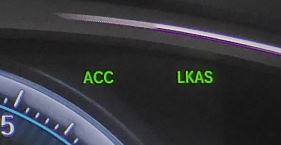A Lane Departure Warning (LDW) system serves as an intelligent guardian of your road position, alerting you when your vehicle unintentionally drifts from its lane. Think of it as having a vigilant co-pilot whose sole job is to ensure you maintain proper lane discipline.
How Does It Work?
The system uses cameras mounted typically behind the windscreen to monitor road markings. Much like how a cricket umpire watches the crease, these cameras constantly track your vehicle’s position relative to lane markings. When you drift towards or cross these lines without indicating, the system alerts you through various means—vibration through the steering wheel or seat, audible warnings, or visual alerts on your dashboard.
Different Types of Systems
Basic Warning Systems
These simply alert you to lane departure but take no corrective action.
Advanced Lane Keeping Assist
More sophisticated systems actively help steer the vehicle back into the correct lane position. However, as noted in Highway Code Rule 150, drivers must not over-rely on such assistance features.
Benefits and Limitations
Benefits
- Helps prevent accidents caused by drowsiness or distraction
- Particularly useful on motorways and dual carriageways
- Can aid drivers during poor visibility conditions
Limitations
- Effectiveness depends on clear road markings
- May not function optimally in severe weather
- Cannot replace driver attention and responsibility
Best Practices for UK Drivers
Remember that lane departure warnings are assistance systems, not autonomous driving features. In accordance with UK driving standards:
- Keep your hands on the wheel at all times
- Use your indicators when changing lanes deliberately
- Don’t disable the system unless absolutely necessary
- Maintain proper lane discipline as taught in UK driver training
- Clean your windscreen regularly to ensure camera clarity

When the System Might Not Work
Be particularly aware that the system may not function effectively:
- On rural roads with no clear markings
- During heavy rain or snow
- When road works alter normal lane markings
- In strong sunlight that affects camera visibility
Legal and Insurance Considerations
While lane departure warning systems have become mandatory on new heavy goods vehicles in the UK since 2015, they remain optional on cars. However, their presence may positively influence insurance premiums, though this varies between insurers.
The Future of Lane Departure Systems
As vehicle technology advances, these systems are becoming increasingly sophisticated. However, the UK’s focus remains on supporting rather than replacing driver responsibility, aligning with the Highway Code’s emphasis on maintaining proper control of your vehicle at all times.
Conclusion
Lane Departure Warning systems represent a significant advance in vehicle safety technology, but they work best when treated as a supplement to, rather than a replacement for, attentive driving. As the Highway Code emphasises, no technology should reduce your concentration levels while driving.
Remember, while these systems can help prevent accidents, they’re designed to assist, not to take control. The responsibility for safe driving remains firmly with the person behind the wheel.
